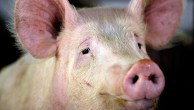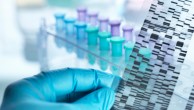
When it comes to food ingredients, health-oriented eaters have a list they avoid
The United States is a nation divided when it comes to food, and Americans’ food preferences are especially evident in what they don’t eat.
The United States is a nation divided when it comes to food, and Americans’ food preferences are especially evident in what they don’t eat.
About half of U.S. adults say genetically modified foods are worse for one’s health than non-GM foods, while 44% think GM foods ingredients are neither better nor worse for one’s health.
Majorities of Americans see at least some risk from food produced using hormones, antibiotics, pesticides or artificial ingredients; half the public says that foods with genetically modified ingredients are worse for one's health than foods without.
Almost six-in-ten Americans consider it an appropriate use of technology to genetically engineer animals to grow organs or tissues that could be used for humans needing a transplant, while 41% say this would be going too far.
Americans' concerns about animal biotechnology focus on risks to animals, humans and the ecosystem.
About half of Americans believe that within the next 50 years science will find a way to eliminate virtually all birth defects through gene editing. Yet majorities of Americans harbor at least some reservations about the impact on society of more widespread use of gene editing.
Americans are more likely to anticipate negative than positive effects from widespread use of gene-editing technology
Forty years after the birth of the first baby conceived via in vitro fertilization, 33% of Americans say they or someone they know has undergone fertility treatment.
Many Americans say government investments in medical research, engineering and technology or basic scientific research usually pay off in the long run.
The U.S. public’s concerns about drug addiction come amid increases in the number and rate of fatal drug overdoses across urban, suburban and rural communities.






